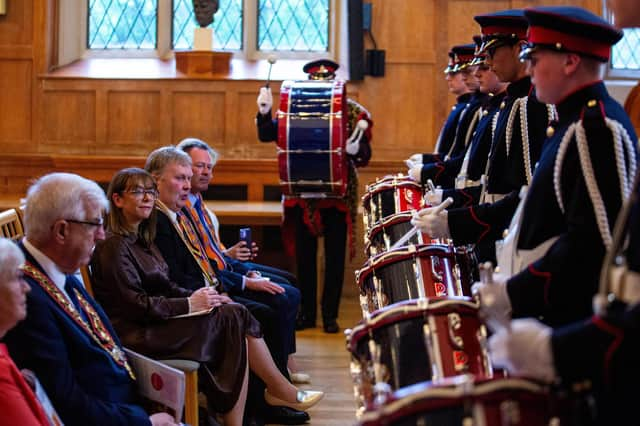Samuel Morrison: It was good to see a Queen's University event recognising the culture of Orangeism


This has been identified as a particular concern of the unionist community although one could counter that unionists going across the water is only what one would expect within a single United Kingdom.
That said, there has been a level of progress in making our places of higher education somewhere where all sections of the community can feel welcome.
Advertisement
Hide AdAdvertisement
Hide AdLast month saw Queen's University host a ‘Celebration of Orangeism’ (see link below) which showcased musical talent from across the Province in the form of Kellswater Flute, Ravara Pipe and Roughan Silver bands among others.
The Orange Society within the university has been to the fore in articulating the concerns of unionist students as well as, as June showed, showcasing the remarkable ability which is often ignored by the mainstream media but is nonetheless an integral part of the culture of many communities.
The contributions from students on the night and in the program produced for the event also highlighted the important intellectual contribution which Protestantism has made not just to Northern Ireland but the UK and the making of our modern society.
In an age which increasingly likes to talk about rights without reference to responsibilities, it was refreshing to see that there are those who recognise that fundamental human rights do not consist of one demanding whatever they believe serves their immediate pleasure or are even about anything particularly cultural but the age old ideas of freedom of speech and religion, the right to a fair trial and the ability to shape one's political future.
Advertisement
Hide AdAdvertisement
Hide AdAll of these are core ideals which were fought for and won at the Boyne and therefore rightly found a place in the evening.
Although seldom appreciated in any context, the 1689 Revolutionary Settlement established the primacy of parliament and the representatives of the people over the Crown therefore resolving the issues of the Civil War of the 1640s once and for all. William and Mary became joint monarchs at the invitation of Parliament which had been elected in free and fair elections in which William did not seek to interfere.
The passage of the the 1689 Bill of Rights ensured that the United Kingdom would have regular Parliaments.
During the reign of James II he had got rid of Parliament and his grandfather had reigned for 11 years without parliament prior to the civil war. The freedom of speech in Parliament which is established evolved into a more general principle of freedom of speech.
Advertisement
Hide AdAdvertisement
Hide AdThe Act also banned ”cruel and unusual punishments”. Never again would the British Isles witness scenes which were common in the Scotland of the 1670s and 1680s where men were gunned down on the roadside for attending conventicals or, as happened in one particularly notorious case outside Wigtown in Dumfries and Galloway, women were tied to stakes and left to drown in the incoming tied of the Solway Firth because of how they wished to worship God.
The Bill of Rights was followed by the Toleration Act of 1689 which granted wider freedom of worship. This meant that those forbidden to preach under Charles II and James II (after the 1662 Act of Uniformity noted theologians like Richard Baxter, John Flavel and Thomas Manton were driven from their churches while others like John Bunyan were imprisoned for preaching without a licence) were now free to preach.
All of those are values which should not only be recognised and accommodated within a higher education setting but positively celebrated and I was pleased to note that during the evening celebrating Orange culture at Queen's the university was officially represented by one of its vice-chancellors.
At a time when many freedoms secured in the Glorious Revolution are under attack by those who dress up their arguments in the language of rights it is but right that time is taken to remember where our nation came from and why former generations protected freedoms which are increasingly coming under attack.